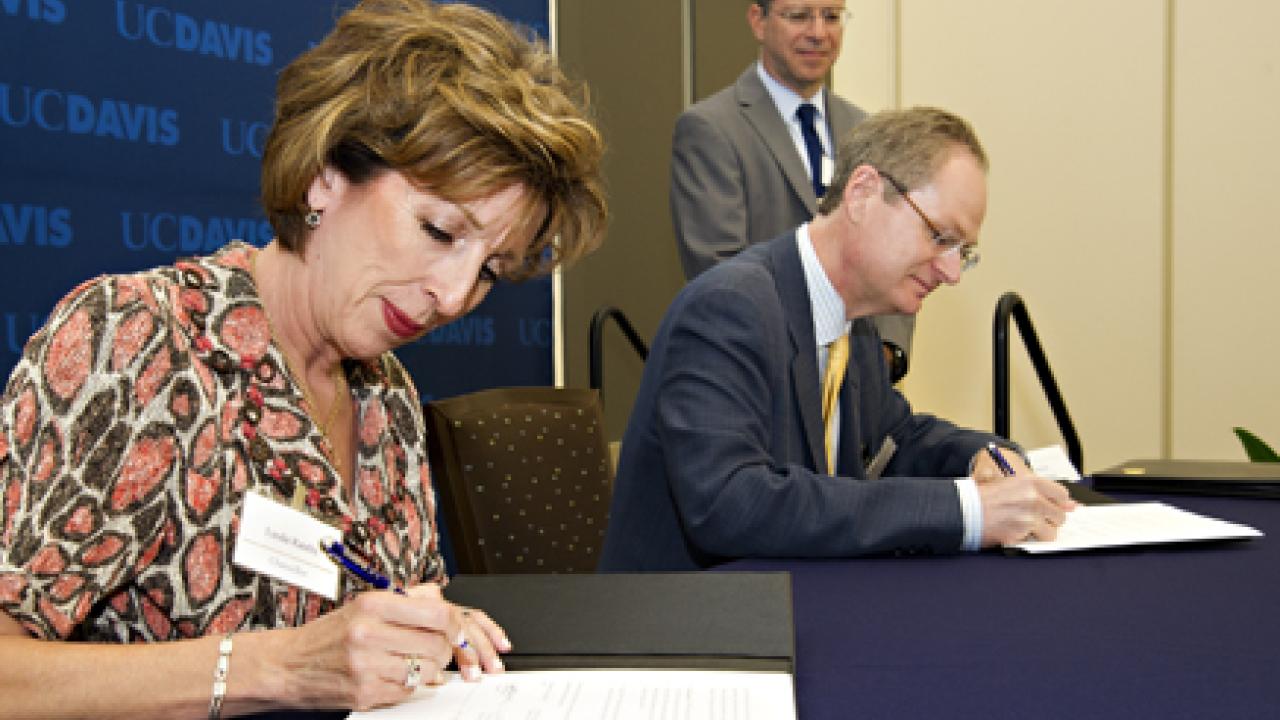“A small galaxy of diverse research” — that’s how plant biology professor Luca Comai describes UC Davis’ relationship with the UC-run Lawrence Berkeley National Laboratory, as they begin a new era of collaboration.
Comai, who maintains his lab in the UC Davis Genome Center, was among the researchers and administrators who joined their Lawrence Berkeley lab colleagues at an Aug. 9 signing ceremony for a memorandum of understanding.
Collaboration between UC Davis and Lawrence Berkeley is nothing new — the institutions share 17 joint appointments.
But, with the new, formal agreement, the institutions can develop important new collaborations, such as clusters of new hires in areas of shared interest, and work jointly to recruit faculty, said Vice Chancellor Harris Lewin, who heads the UC Davis Office of Research.
“It allows us to think strategically and move forward together on areas where we align,” Lewin said.
The Lawrence Berkeley lab has world-class resources in the areas of computing and genomics, he said, while UC Davis brings knowledge of biological systems.
Lab Director Paul Alivisatos noted: “Areas at the intersection of biology, energy and the environment are key strategies for LBNL — very complementary with areas of focus at UC Davis.”
In its earliest stages, the new collaboration will take shape through two work groups:
• Big-data applications for life and medical sciences, incorporating efforts for genomics research, health science research and health care information technology.
• Predictive agriculture, which is the sustainable integration of agriculture, energy and water systems.
UC Davis and the Lawrence Berkeley lab also are growing closer physically — considering the lab’s plan to build a Richmond campus, “allowing us to interact at another level,” Lewin said.
Today, Lawrence Berkeley lab has just one campus, in Berkeley, and more than a half-dozen off-site centers. The Richmond campus will allow for a money-saving consolidation of biosciences programs and more collaboration among researchers.
The Richmond Bay Campus will go on 152 acres of UC property formerly known as the Richmond Field Station. The new campus is expected to open in 2016.
Media Resources
Dave Jones, Dateline, 530-752-6556, dljones@ucdavis.edu
